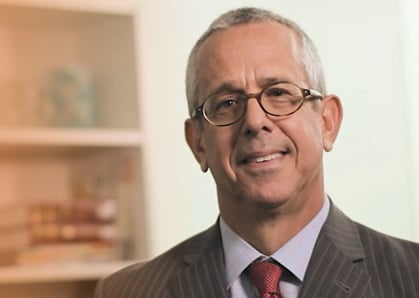Work for Smart Development
The Florida Department of Economic Opportunity is a relatively new state agency designed to ensure the continued growth and development of the region without hurting the preservation of our state's precious natural resources. Last month, the agency came out with its annual economic growth report, and while it made attempts to reconcile the competing interests of developers, environmentalists and government, it once again missed the mark by failing to bring developers into the conversation.
In order for the DEO to be effective, it must begin to view the developer community as a partner — rather than obstacle — to achieving its goals.
Coordination with the business sector is critical to managing the state's economic development and environmental planning efforts. Yet by restricting dialogue to internal conversations between regulatory agencies, the group with the most at stake — and most likely to offer solutions — has essentially been cut out of the process.
For example, our current government-mandated carrying capacity models, which determine how much growth an area can support, are created by the state's municipalities and corresponding water management districts, resulting in growth restrictions that could have been avoided by working with the business community to find alternative solutions, such as new water supplies.
When it comes to environmental protection, developers have a keen interest in preserving our natural resources, and as such, can play a strong role in driving this effort.
Florida's development community has learned to embrace environmental protection measures, not just because it is the right thing to do but because it makes good business sense. After all, what developer would attempt to build without access to adequate potable water or where natural resource issues are insurmountable? Not only are these elements necessary for regulatory approval, but in today's market, they are critical to making a development viable.
This is not to say that developers and landowners should have unilateral control of the state's natural resource protection. I would never advocate for a return to Florida's freewheeling past of swampland sales and roads to nowhere. However, the private sector deserves a meaningful place in the conversation about Florida's future.
An example of this type of cooperation can be found in the development of the St. John's Heritage/Palm Bay Parkway, a connector road proposed to reduce traffic between Melbourne and Palm Bay in Brevard County. The county has worked hard to bring a variety of interests to the table to address environmental issues as well as protection of private property rights.
While the idea of strategic cooperation is raised at several points in the DEO's 2012 annual report, it doesn't provide a means to achieve it. We need to move beyond regulators, advocacy groups and developers operating in their own individual silos and instead work together towards what is surely a common goal — smart development that preserves our natural resources while advancing regional growth.
The most beneficial result that could come from the DEO's efforts would be the creation of a framework that provides opportunities for government and business to come together and create one vision for Florida's future.
Howard E. Nelson is a partner and chair of the environmental practice at the Florida law firm of Bilzin Sumberg Baena Price & Axelrod, LLP. Nelson has more than 20 years of experience in environmental and land use law and more than 25 years of experience in zoning and regional planning. He wrote this exclusively for the Tampa Bay Times.
